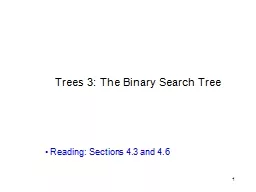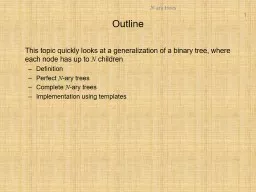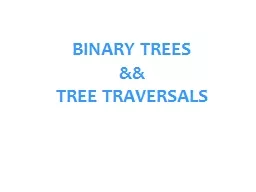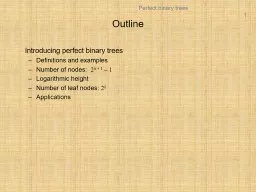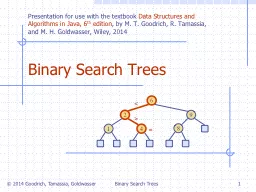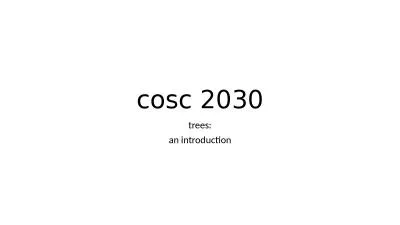PPT-1 Trees 3: The Binary Search Tree
Author : luanne-stotts | Published Date : 2017-12-04
Reading Sections 43 and 46 2 Binary Search Tree Also known as Totally Ordered Tree Definition A binary tree B is called a binary search tree iff There is an order
Presentation Embed Code
Download Presentation
Download Presentation The PPT/PDF document "1 Trees 3: The Binary Search Tree" is the property of its rightful owner. Permission is granted to download and print the materials on this website for personal, non-commercial use only, and to display it on your personal computer provided you do not modify the materials and that you retain all copyright notices contained in the materials. By downloading content from our website, you accept the terms of this agreement.
1 Trees 3: The Binary Search Tree: Transcript
Download Rules Of Document
"1 Trees 3: The Binary Search Tree"The content belongs to its owner. You may download and print it for personal use, without modification, and keep all copyright notices. By downloading, you agree to these terms.
Related Documents

